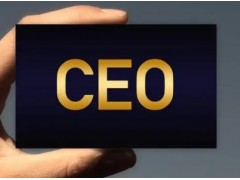The speed at which an operation grows and matures can often impact adversely on the attention given to human resources. While managers concentrate on the core business, it is far too easy to neglect areas of the operation.
One of those areas that most certainly must not be treated in a flippant fashion is recruitment. But however quickly a rapidly growing organization needs to bring on board new talent and additional skills, the worst decision can be a rushed one, according to Nick McKittrick.
The Managing Director of thriving UK web-based property advertising business Rightmove has seen his group develop from a dozen or so launch employees to a staff of around 250 in its short history dating back only to 2000. But despite the near scramble for people to handle the rapid growth, McKittrick keeps a level head when it comes to recruitment. His ethic is: “If in doubt, keep looking.” He explains: “A strong recruitment policy to a growing organization is absolutely vital. If you get the wrong people, even if you have the right direction, I don’t believe you will ever have a great company. It’s not people who are your most important asset, it is the right people. Being rigorous about who you recruit is fundamental to your success. It is one of those things that is easy to say but very difficult to do. It is frustrating being unable to find the right person but hiring the wrong person causes all sorts of problems. It is frustrating and quite soul destroying if you are a few months through the process and you have been introduced to a lot of candidates but you still have not found the right candidate. Yet you have to keep looking. You have to have a standard and work to it. If you don’t have a line and work to that, you will lower your standards – and then you don’t know where it will drop to. You have to believe that is the difference between good results and great results. Rigor in recruitment is one of the absolute business basics for me.”
But what is a company such as Rightmove looking for when it comes to attracting new people? McKittrick, 39, explains: “Education and skills are important but I put the greater weight on attitude. I place the emphasis on character, what a person’s work ethic is like, what their values are, what they are like as a person. These aspects are more deeply ingrained and tell you more about what the person is really like, and their values and ethics. We examine how diligent a person is. The things you are either born with or you learn at a very early age.
“Some people are more natural when it comes to making recruitment decisions, so instinct does come into it. When Rightmove started, I interviewed everyone but as it has grown I have had to delegate some of that responsibility to key people in the organization.
“We do not look to mould people into Rightmovers, as people have called them, we are looking to recruit people who fit into the organization. I don’t believe you can mould deeply ingrained values.
“What we try to do it is to find out what people have done in life and why they have made certain decisions. We talk about their experiences and the human side of things rather than standard topics of education and the like. We examine the tough decisions they took and why they took them.”
McKittrick, who spent eight years from 1990 with the global consulting group Accenture where he reached senior executive level in the technology consulting division, likes to have a strong control over hiring his people, but he does see the strength in using recruiters.
He says: “We could not do it without outside recruiters because they give you access to a bigger marketplace directly. They have the reach.
“But recruiters must understand you, your business and realise fully what you are looking for. It is not just about skills or qualifications, they must appreciate the kind of person you are looking for, making sure they have the right sort of values and ethics you are looking for. They must understand your core values.
“We work closely with a select number of recruiters who supply and feed us a small number of candidates but to a high quality. Recruiters supply the candidates——but we never delegate the decision-making process, or the interviewing process. We do that ourselves.”
McKittrick sees a real strength in insisting his managers have the final say on who they bring into their particular department. He says: “We want the managers to feel completely responsible for who they hire. We want them to realize that if you hire the wrong person, even if you know the right direction, it won’t make your team great. That is where we get over to them the value of good decision-making. They must realise that taking your time and hiring the right person is better than rushing and hiring the wrong person. So the managers work in partnership with human resources.
“If you have HR making the decisions on recruiting you get a ‘them’ and ‘us’ situation. A manager who produces a poor performance or poor results will say, ‘Well, that’s because HR recruited the wrong person for me’. So managers must have the final say on who they have in their team. That is the key. A manager’s success will be based on his or her ability to hire the right people. And the right people work out what to do – it is not difficult to manage them. Their moral code makes them want to do the best they are capable of. We are fanatical about that. It is hard, when the pressure is on to grow an organisation, to keep looking and keep turning candidates down, especially when recruitment agencies are pushing hard because they don’t make any fees until they place people.”
McKittrick is an advocate of psychometric-style testing to help guide the interview process. He says: “If assessment programs are done right, they can be very powerful. Because of the sort of people you are hiring, you can get through a large number of people with assessments. It also gives you a real-time comparison so you can see people in practice and you can compare people against each other in real life scenarios.
“It would concern me if you simply went through an assessment process and you had to hire someone just because you had gone through with that process. That is often a danger.”
Rightmove as a company does not rely on drugs or alcohol testing for candidates, but companies in the UK are looking more and more to this facet of the recruitment process that is more popular in the United States. McKittrick says: “If you have a good reason, I would not be against it. I am sure that, with all the risks in business, it will become more a common occurrence in the UK. You can do it legally nowadays but it has not been a problem for us so far.”
“When it comes to remuneration and reward, Rightmove is as alert as anyone to the fact that the package must be right to attract the sort of talent that will move the business forward. You don’t want people joining you simply for the money.”
He says: “You must be competitive but I don’t believe the amount you pay someone will change fundamentally the way they behave. The right people work to their own morale code. You have to pay people for their value but it doesn’t change their behavior. It is hard to fake genuine enthusiasm. It is about character.”
Rightmove, based in Milton Keynes, is the seventh largest website in the UK for page impressions, and that reliance on technology gives the organisation a strong skills diversity – a balance between sales people and specialist IT individuals. Half of the 250 employees handle the sales side of the operation, which publishes 800,000 properties to buy or rent in the UK plus 400 overseas clients from around 60 countries. Its sales consultants in the field visit, train and sell to customers. But the business is based around the technology office in central London, which has between 40 and 50 specialists handling IT for the ever-expanding operation. The development of broadband has undoubtedly helped Rightmove to be at the center of real estate on the web in the UK.
McKittrick says: “We need people who are capable of constantly upgrading our technology. We started by building the product and the website and we sized it to give us 20 million page impressions. In September 2006, we had grown our facility to give us 400 million page impressions.”
But whatever changes technology throws at Rightmove’s IT specialists, however the pace of change forces an update in their web thinking and development, McKittrick will still rely on his trusty old traditional approach when it comes to recruiting his people: “If in doubt, keep looking.”
 手机版|
手机版|

 二维码|
二维码|








